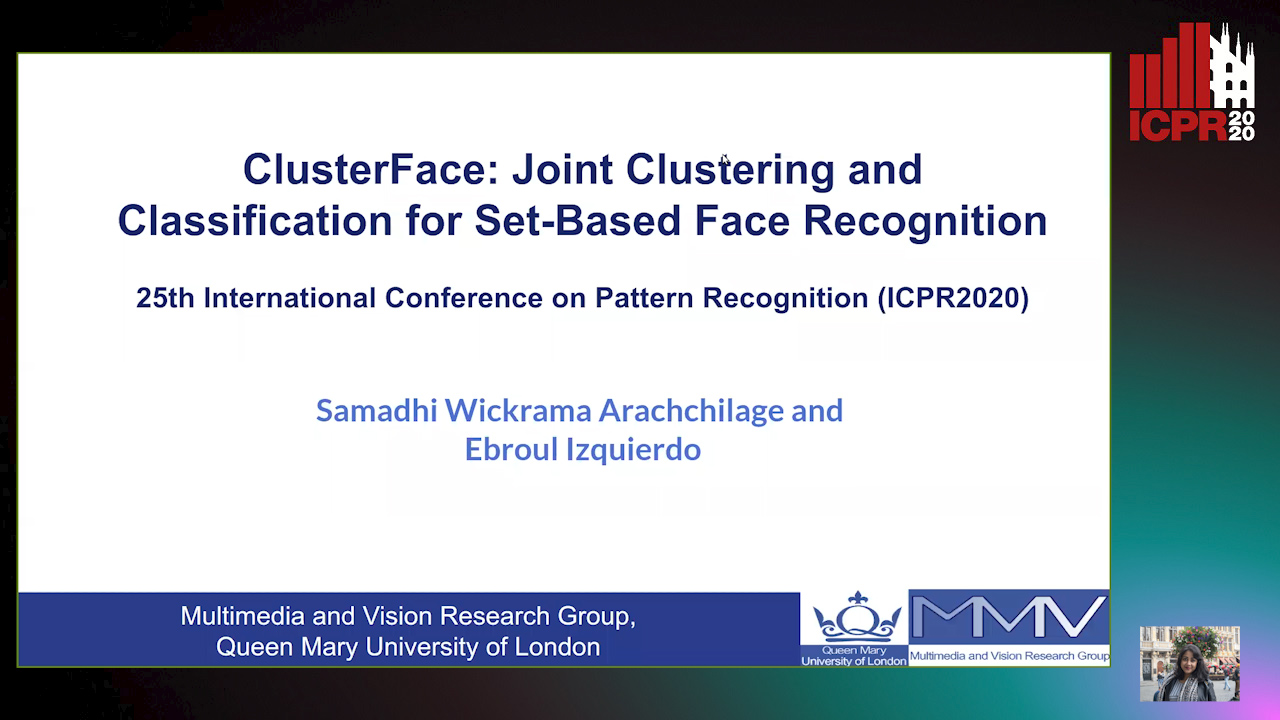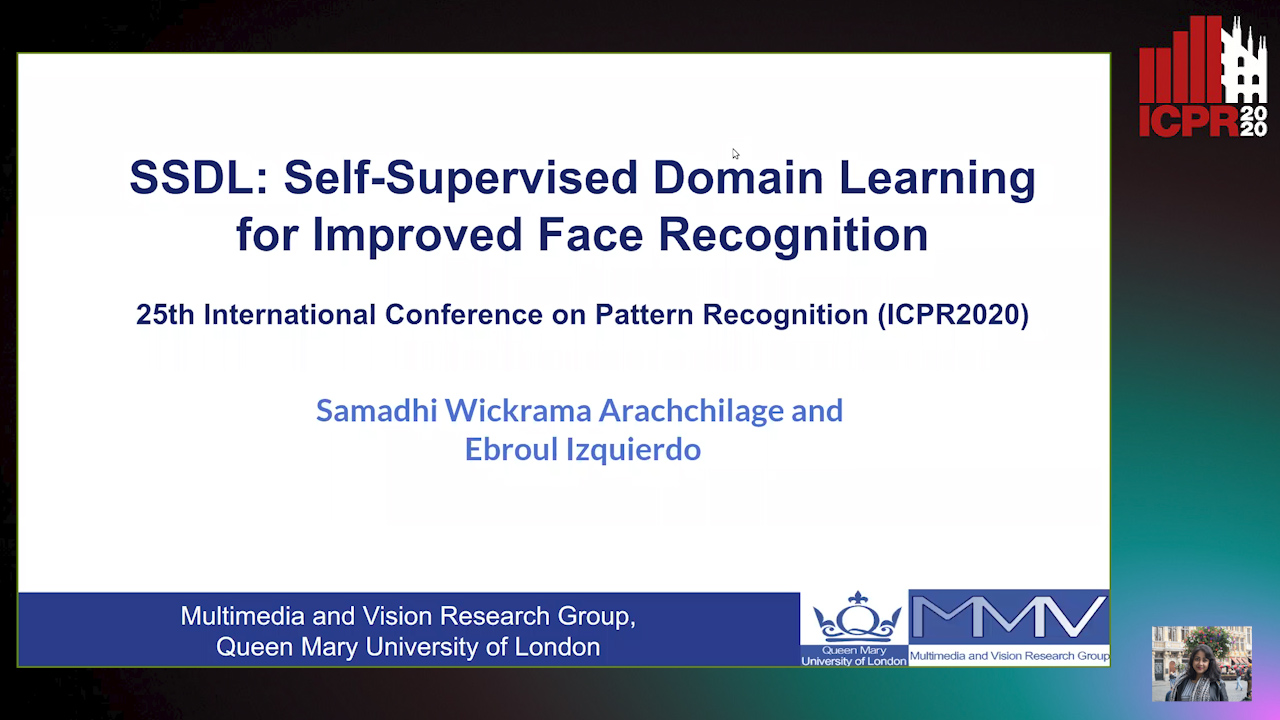Samadhi Poornima Kumarasinghe Wickrama Arachchilage
Papers from this author
ClusterFace: Joint Clustering and Classification for Set-Based Face Recognition
Samadhi Poornima Kumarasinghe Wickrama Arachchilage, Ebroul Izquierdo

Auto-TLDR; Joint Clustering and Classification for Face Recognition in the Wild
Abstract Slides Poster Similar
SSDL: Self-Supervised Domain Learning for Improved Face Recognition
Samadhi Poornima Kumarasinghe Wickrama Arachchilage, Ebroul Izquierdo

Auto-TLDR; Self-supervised Domain Learning for Face Recognition in unconstrained environments
Abstract Slides Poster Similar